With c-store sales set to outgrow the supermarkets, Spar’s new MD sets out her manifesto to help the symbol group win its fair share of the market
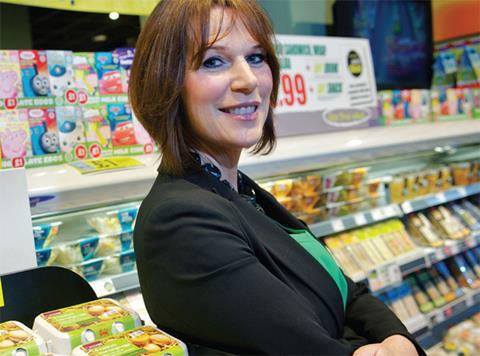
It’s a truth universally acknowledged that convenience store sales are set to outpace the grocery market. But with the mults muscling in on what had long been the stronghold of independent retailers, the need for indies to compete favourably, or at least equally, on price and standards has never been greater.
Symbol groups like Spar have been the main beneficiaries of this movement, with numbers swelling 2.9% to 16,288 in the past 12 months, as independents have sought protection through affiliation. But there’s still an awful lot to play for: 20,351 stores, with a turnover of £6.9m, are still going it alone [IGD December 2010].
It’s the mission of new Spar MD Debbie Robinson to give these retailers a compelling reason to choose her fascia over rival groups. Robinson, who took over the helm last September, says that the benefits of signing up to a symbol group are manyfold.
“There are some fabulous [unafilliated] independents that have been there for some time and the loyalty and heritage they’ve built up continues if they join a symbol group,” she claims in her first interview with the press since her appointment. “And if you’re just entering the market, a symbol group gives you credibility and higher standards. A retailer that joins gets access to goods and services they wouldn’t have on their own.”
But just how does Robinson intend to convince unafilliated independents that Spar is a better option than rival operators and secure a sizeable chunk of the 20,000 or stores up for grabs?
One way she hopes to entice them is through a more compelling own-label proposition. Own label currently accounts for 22%-23% of Spar sales, a figure that Robinson is looking to “grow quite significantly” over the next few years through ranges such as S Budget, which generated £2m sales in the depots of Spar’s five regional wholesalers in the first two months after launch in September.
Robinson is not in a rush - “You have to do it sensibly and take the retail customer with you. I think it’s wrong to shoehorn it in,” she explains - but more own-label is set to follow. The S Budget range was developed in Austria and there are numerous other ranges from Spar’s global network that it could bring to the UK, such as pasta from Spar Italy.
Spar UK is also looking to develop new products from scratch that are specifically targeted at the domestic market. One idea is a range of items with a round number of calories. “It’s almost taking inspiration from the simplicity of Iceland’s round-pound pricing,” says Robinson.
Consumers could easily add up the number of calories in their basket, she adds, and meeting these round-calorie points for products would be no harder than value engineering to achieve a particular price point.
An opportunity also exists to develop ranges that address emerging social trends, such as the growing number of single-person households. Spar is better placed than the mults to lead the industry in this regard, claims Robinson, as the mults remain geared towards their big box formats. “They have a trickle-down of ranges developed for superstores, but convenience has always been at the heart of Spar.”
A fresh approach
Fresh food is another area that features prominently in Robinson’s manifesto for growth. Focus is key, she says. A core range of fresh fruit and vegetables with some added seasonal lines for incremental sales, and a “little bit of all of it” when it comes to fresh meat and fish - bacon, decent sausages, lean beef mince, chicken and salmon fillets - is all retailers need, she says. “Less is more. You need the turnover of stock to keep it fresh and vibrant.”
Robinson would like to see fruit eventually overtake sausage and bacon sales but concedes there’s a long way to go before that happens. In the first seven months of Spar’s financial year, bacon and sausages made up 5.1% of store sales, while fruit accounted for 3.2%. To get there, Spar needs more retailers on board and to do that, it needs to help them reduce fresh food waste.
“When you’re a shopkeeper and you’re throwing something in the bin, you’re looking at the price you paid for it,” says Robinson. “We’re working with wholesalers to make sure the delivery frequency is right, and working with suppliers on case quantities.It’s also about understanding that of course there’s going to be wastage, but usually there are healthy margins to be had which compensate for that.”
Robinson points to the appointment of Vicki Reay, who joins Spar in the new role of commercial director in May, to underline her commitment to the fresh cause. As buying director at Aldi, Reay substantially grew fresh food sales across the estate. “With her experience in fresh food at Aldi and mine in fruit at The Co-op Group, we’re in a great place,” says Robinson. “Vicky has experience in a global retailer similar to Spar and is going to bring all the benefits of buying on a global level.”
The ultimate objective is to deliver value to customers and margins to retailers. “I talk a lot about profitable sales. It’s really important that we pride ourselves on that,” she says. To this end, she has been meeting Spar suppliers in a bid to beat them down on price. “We’re working hard on cost and prices, that’s the day job,” she says, adding that she has recently renegotiated a deal for Spar’s olive oil that will save retailers £300,000.
This week she chaired a meeting of Spar’s joint buying consortium as it embarked on plans to carry out a root-and-branch range review to remove duplicate lines and make space for growth areas. “We need to look at each of the categories and decide whether there’s a genuine benefit to the product. If you use baked beans, it’s fantastic that we have them, and the reduced sugar and salt is important to include to customers. But you don’t necessarily need duplication of brands to deliver that.”
The other benefit of the review, she adds, is the “huge potential” to improve its buying power with the brands it sticks with. This won’t necessarily endear Spar to suppliers, some of which have expressed frustration at dealing with five regional wholesalers who, they complain, at times ask for different products or promotions. Robinson says suppliers should look at their own businesses before levelling criticism at Spar’s structure.
“We have to think about the customer in all of this,” she fires back. “Suppliers should have a strong idea of where the product fits in the market and be commercial and consistent in knowing what sells.”
That said, she acknowledges that Spar works better for everyone when all parts of the business share the same ambition and that’s one of the goals set out in Inspiring Growth, its new growth strategy this week. “It’s not central office saying this is what we’re going to do. Everyone has to get behind it,” says Robinson.
Big growth opportunities
One obvious potential growth area for independents - at least in the short term - is tobacco. Booker’s Charles Wilson predicts that they could steal as much of £500m of additional tobacco sales from the multiples as shoppers buy cigarettes from stores unaffected by the display ban. But how does Robinson, for whom health is a personal passion - she will run her ninth consecutive London Marathon this year if injury allows - feel about indies being able to boost their tobacco sales as a result?
Although tobacco sales are likely to rise, this is not where the real long term opportunity lies, she argues. “For me, the most exciting part is the enormous opportunity for the area behind the shop assistant. It has been dedicated to one category for so long. I think you could have some fabulous displays there. There are some goods and services you could offer, or fresh food done well could really be something.”
There’s also an opportunity to broaden the range of services on offer in store. Retailers may still sell stamps, for example, but mobile phones are the dominant mode of communication nowadays. Charging a flat battery on a phone for 10 minutes while a customer fills their basket is a service stores could easily offer, she suggests.
Space could also be offered up to parcel collection companies, but the arrangement would have to be reciprocal. For example, if the store provided a free service, the parcel company could give its customers a voucher to spend in store.
“When you’re providing a service you’ve got to be careful that there’s a really acceptable margin,” says Robinson. “Energy companies are enjoying huge profits, but the retailer gets a very small margin for taking their payments.”
It could be a long slog, but the marathon veteran says she’s in it for the long haul and wants to turn Spar into “the best convenience store in the country” - in so doing, regaining the upper hand from the mults.
“Spar invented convenience here in the UK,” she claims. “The new entrants to the market have raised standards, but we’ve been here the longest and I think we’re best placed to take back that mantle.”
Debbie Robinson snapshot
Age: 46
Educated: Burnley and Manchester
Lives: Between Manchester and Harrow
Family life: Lives with Andrew; two children - Charles, 24 and Sophia, 19
Last holiday destination: India
Favourite meal: Fish and mushy peas
Favourite bottle of wine: Sauvignon Blanc
Career: Robinson joined Spar as managing director in September 2011. She was previously marketing director of JJB Sport after setting up her own consultancy business with clients in the UK, Europe and UAE. But she is best known for her time at The Cooperative Group. She joined as a graduate trainee and 1987 and was director of food marketing when she left in 2010.
Robinson created the “good with food” campaign and previously worked in a number of roles including buying, store format and development, merchandising and design for forecourts, c-stores and supermarkets.







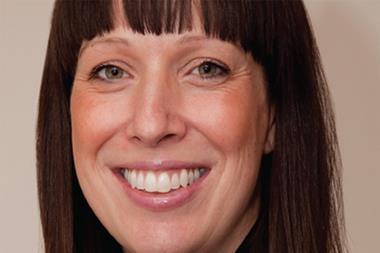
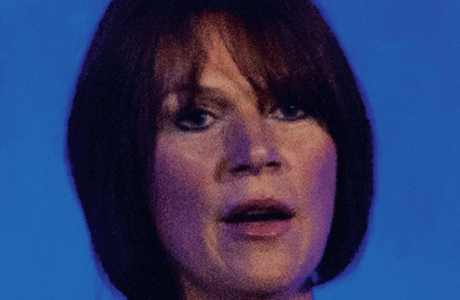



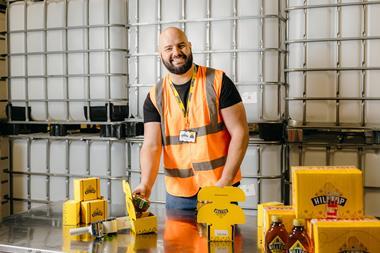
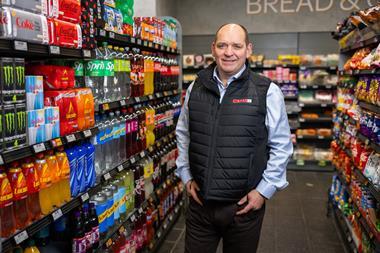
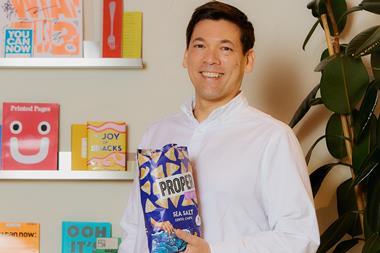
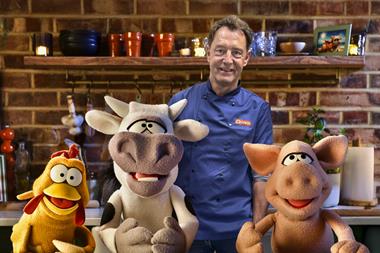

No comments yet